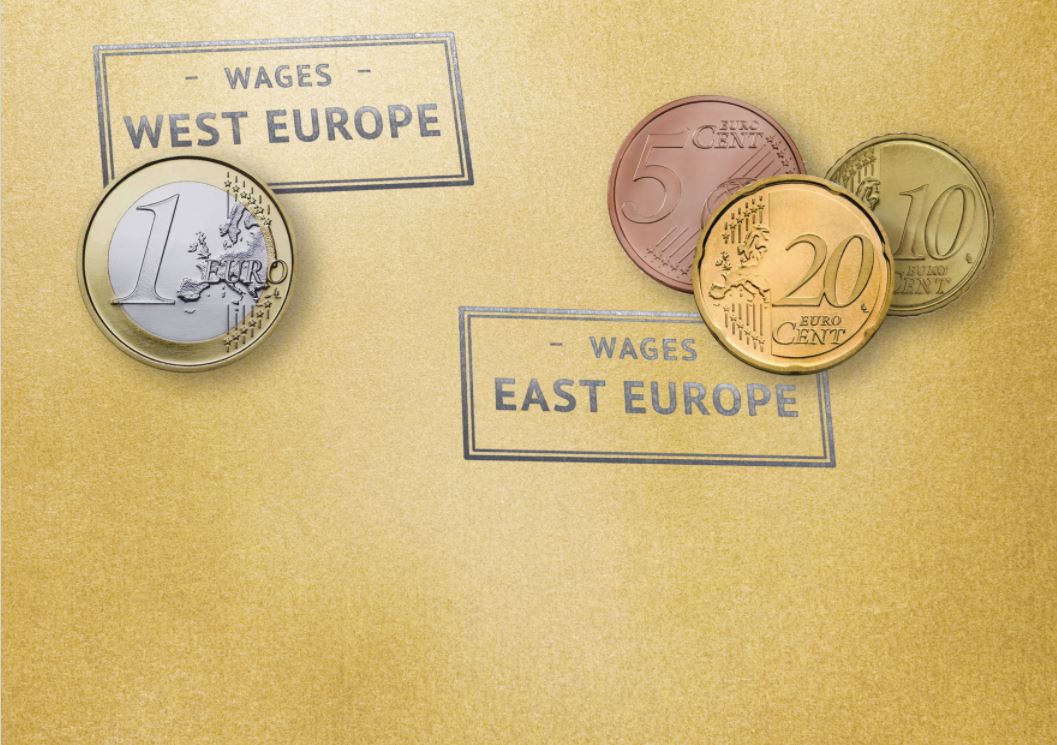ETUC-led campaign exposes the true extent of East-West Pay Gap
Published:
Today, 21 September 2017, ETUC’s Pay Rise Campaign is launching a new action highlighting the wage differentiation between Central and Eastern (CEE), and Western European Countries. This action is supported by a working paper published on the same day, and displaying data collected by the European Trade Union Institute (ETUI), titled ‘What drives wage gaps in Europe?’. The study notably shows that the economic crisis has effectively stalled upwards convergence in living conditions between Central and Eastern and Western European countries, and that the state of workers’ rights and collective bargaining in these countries is ailing. The substantial wage gap between workers in the same sectors has also been recuperated by detractors to Europe’s core values. As such, the East-West Pay Gap is a threat to social justice, sustainable growth, but also the future of Europe.
In the education sector, ETUCE is a longstanding advocate for increase in collective bargaining coverage and pay rises in CEE countries. Through, notably, the work of its Central and Eastern European Network (CEENET), ETUCE intends to raise awareness on the dire remuneration provisions for education personnel in Central and Eastern Europe. In addition to traditional weaknesses, a 2016 ETUCE Survey shows that the economic crisis has resulted in salaries freezes for education workers. In the study, 53% of respondent in CEE countries report the salaries of teachers to be lower than the average salary of employees in their countries. During 2016 and 2017, with collective bargaining and social dialogue being undermined in many CEE countries, education trade unions had to resort to strong industrial actions in Romania, Albania, Hungary, Ukraine, Moldova, Czech Republic, and, most recently, in Serbia, where education unions demanded decent salaries for teachers and other education personnel.
Reacting to today’s ETUC’s action, ETUCE European Director Susan Flocken expressed: “ETUCE is aware of the precarious wages and working conditions of Central and Eastern European workers in education. The impact of the East-West Pay Gap is multi-layered, and affects not only CEE workers’ ability to provide their students with the quality education they deserve, but also contributes to a brain drain hampering CEE countries’ development in research areas.
European leaders”, she continued, “need to take action in order to effectively tackle this issue. European Commission President Jean-Claude Juncker said in his recent State of the Union address that there could be no second class workers in a Union of equals. It is time to put these words into action. The future of the EU as a Union in equality and solidarity depends on it”.
ETUCE will continue monitoring the wages and working conditions of CEE education workers, appealing to policy-makers to encourage social dialogue and collective bargaining, and providing CEE member organisations a platform to share their national experiences, with events such as the upcoming CEE Roundtable, set to take place in Riga, Latvia, on 27-29 September 2017.